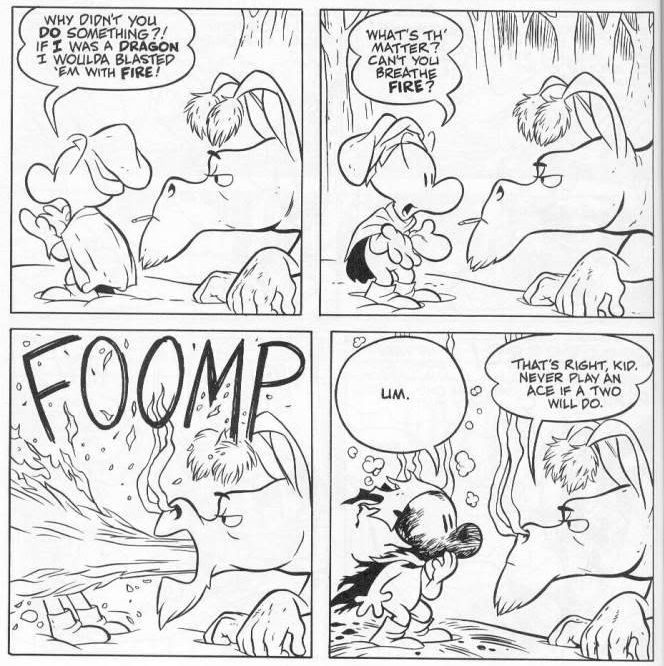When I’ve published a blog on SEO, I consider that a success. In no small part because it comes with all the catharsis one feels when one’s pet mouse reaches the impractical conclusion that started with a hypothetical cookie.
Usually, I start with a title that I think is my thesis. It’s not long from there that I discover it’s really a stray thread to a whole other topic. And, as it unravels, out comes the personal experiences, stray observations, and painstakingly crafted gifs. And what’s worse is I don’t want to give any of them up, even when they no longer make sense or I’ve successfully counter-argued my point. It’s not perfectionism, it’s ouroboros.
What ends up happening is, I set out to write a blog about SEO and if I finish, then you can rest assured there are 2-3 fragmented topics saved as drafts — that I assume I’ll get back to. Shoutout to my drafts…

So to quote James from my college days when he’d catch me digressing on a particularly winding road: “Objection: relevance?”
How AI makes us more efficient
I think people get the wrong impression when it comes to AI. At least in SEO. When I talk with my peers about how they integrate AI, many don’t. When I ask why they don’t, I usually get 1 of 2 responses.
- veiled defensiveness of ultimately wanting to own every part of their own work.
- they tell me they asked ChatGPT to solve their problem, and it didn’t work.
Ironically, the former is worried AI will work and the latter doesn’t want it to. But I suppose that’s the trouble with irony, other than pointing it out, it doesn’t get us anywhere.
Long story short, if you’re asking AI to solve your problem, then of course it won’t work. That’s not seeking to improve efficiencies, that’s asking AI to think on your behalf. Put another way, instead of treating ChatGPT like their faithful & competent sidekick (or Robin), they’re asking Gemini to be their manager (i.e. Batman). And don’t get me wrong, I like Batman, but I wouldn’t want them as my boss.

I don’t think this is laziness, I think this comes from a lack of self-confidence. This is why I deliberately use the word “efficient.”
Let’s talk about CTR
CTR (click-through-rate — if you’re just joining us) is a measurement of efficiency. And I realize this may seem obvious, but bear with me because, if you are anything like me, then perhaps this is something that’s faded from your view. Like if you’ve ever been on a Google Meeting (or Zoom/Teams — pick your poison) and you’ve been sharing your screen and suddenly, you need to do something you hadn’t planned on, and the dashboard suddenly isn’t populating data as expected. And it may well be the pressure of presenting but suddenly it’s like someone has swapped your QWERTY keyboard with a DVORAK one. And as you’re “um”-ing and “ah”-ing and looking for the thing you need (on camera [being recorded (on a particularly bad hair day)]), a team member may offer assistance, telling you to click “View” in the navigation, and you hesitantly move your mouse up not knowing where or what “View” they’re seeing because you can’t see anything beyond the humiliating, spellbinding gibberish before you.

What you need in that situation is not someone to tell you “what to click on” but “what to click on based on your shared knowledge,” in other words:
NOT
- Click “view” at the top.
BUT
- Bring your cursor over “File” in the top-left. Then move it to the right until you’re hovering over View.
The mention of “File” may seem pejorative on the surface, but it’s critical to align you both. This is the shared knowledge. And marketers do this all the time (see: SEO is like building a house).
If you can’t explain what you’re talking about… well then people are gonna think you’re pedantic at best and, whatever this ad for Slack was meant to be, at worst.
Exec Summary Story-Time:
I once worked in-house for a company that had several sites, each one with over several million pages. I thought I was making progress because I made a beautiful 16-page deck that went into detail about how Googlebot has only ever seen 7% of the entire site. I showed this to my manager –> who had me show it to one of our developers –> who had me share this with his manager (to prioritize) –> until eventually I reached the CTO of the company — who serendipitously had quite of bit of SEO and marketing experience under his belt. He got it; he understood the problem; and he had me prepare the deck to present it to the owner & several stakeholders. I buffed my 16-page deck to a meaty 23 slides. And the fateful day came where I presented. I hit the 3rd slide, the executive summary, and the stakeholders stared blankly asking why they should care. I panicked, but the CTO stepped in:
What he’s saying is, we’re only making revenue from 7% of the site. At the rate Google is crawling new pages, it’ll take Google over 100 years to crawl the entire site. I don’t know about you guys, but I’d like to retire before then, and if we can start driving revenue from the other 93% of the site, we can do that a lot sooner than later.
We never got to the rest of the deck. Instead we stayed on the slide while they deliberated over next steps, resourcing, and creating a plan.

CTR is a measurement of efficiency; impressions divided by clicks and voila! So even if seasonality leads to a decrease in clicks and impressions, assuming all else is equal, a site could could maintain it’s CTR. Breaking it down into simpler math:
- 100 clicks / 1000 impressions = 10% CTR.
- 50 clicks / 500 impressions = 10% CTR.
- 10 clicks / 100 impressions = 10% CTR.
This is something I know you know, but much like when your kid first asks you, “what’s ‘before‘ mean?”, it warrants a reminder. And while that’s talking “data”, imagine if you could generate the same output of “work” but instead of a project taking 40 hours, it takes 20; how about 10?
So let’s bring it back:
AI makes us more efficient
Don’t use AI expecting to “solve” your problems, use AI to streamline your process.
I’ve often heard developers tell me they learned how to code because they wanted ways to automate the things they hated doing. I mean, I’m one of those people that hates driving and I now believe this is what contributes to my gung-ho-ed-ness for a Minority Report autonomous car utopia.

My point is, surely there’s a step or two in your process that’s complicated and/or time-consuming, so use AI to be more efficient.
For example, I’ve got a content gap process I’m quite proud of. Pulling the data is easy — I go on autopilot — and the analysis into recommendations is genuinely fun and mentally stimulating! Yet when I scrolled through my documented process (cus I document everything and you should too), I found this:

This is a placeholder. A throwaway line. A cardinal, “can I borrow you for 5 minutes?” flash forward to “9 hours later” situation. A nebulous condition that doesn’t scale. This demands you peruse the rows and rows of keywords and find patterns before you go cross-eyed. This is like when you’re trying to break bad news to someone, but don’t want to do it outright, so you write up a paragraph of fluff only to throw into the bottom, “oh, by the way, your car was towed.”
It’s not even that I hate scrolling through keywords, but I’m not so solipsistic to assume that I’m going to catch every possible pattern. It’s a breeding ground for human error! And this is what I mean by efficiency.
The most difficult part of my job is not knowing if the data I’m pulling is going to be enough to accomplish what I need. For example, let’s say I’m performing a competitor analysis and I want to see how well each competitor ranks on page 1 for non-branded terms. And suddenly, competitor number 3, ranks for almost nothing non-branded. Now, what?
- Do I expand it’s ranking keywords to page 2?
- Do I make an exception and include branded terms for this one?
- Do I make those exceptions the rule and re-pull the previous two domains?
Now, I don’t have a fun puzzle. I have a dilemma at the cross-roads of insecurity (am I doing this right?) and the sunk-cost fallacy (it took me 40 minutes to pull the last 2.).

It sucks.
And I know this is why SEOs often find more work to do. The number of spreadsheets I find with stray tabs and irrelevant columns… it’s digital hoarding to prevent client scrutiny leading to duplicate efforts. I’ll see a CPC column and I know the thought process is, “what if the client asks to see what the total CPC saved is?” The number of SEOs whose jaws have dropped when they realize they had the data, but deleted it because no one had ever asked… and now, they’re going to need to go back and pull the data they already pulled… again, ooo boy, and if it’s slightly off…
It sucks.
So what if you pulled all the data, and had AI run a script to parse it? Giving you a separate sheet with all the curated data you need, so if the client wants more, that’s no more than an xlookup.
AI makes us better communicators
Every element of integrating AI makes us better communicators.
Even the output of AI can be a fortunate consequence of the true benefit: clarity in communication. When you’re forced to explain your process prescriptively so there’s no room for error for a machine, your co-workers, nay — all people — benefit.
I don’t use AI to write my emails, but when I catch myself feeling anxious about sending an email, I’ll draft it in an AI’s dialogue box. I do so with the intent of using AI, so I don’t hold back and I outline what I need it to say. It might go something along the lines of:
I need you to write me an email to John. I need you to lead with the fact that traffic to [specific business unit] is down by X% and it doesn’t appear the recommendations are having a positive impact. Explain in clear bullets the following that here’s what we’re going to do:
– Step 1: Do Y
– Step 2: Check Z
– Step 3: Formalize AA
In other words, by the time I get to the end of writing my “draft,” usually I take what I’ve written, make some tweaks up top, and send what I’ve got. It forces you to talk through your process in a clear, defenseless way.
All of which is to say, AI makes you better, not obsolete.
Unless you’re Adobe Illustrator, in which case, now you’ve got some real organic competition, buddy.




